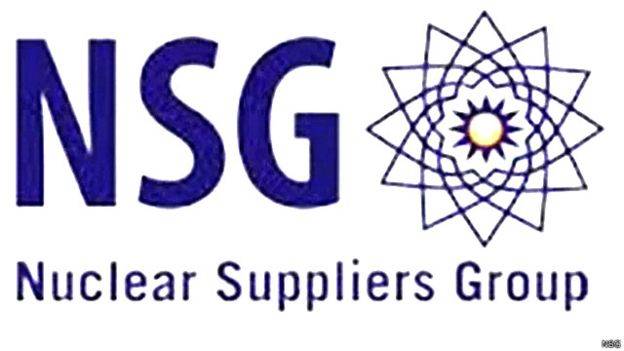WASHINGTON - About 17 experts on nuclear matters have called for setting "strong standards" for new membership of the Nuclear Suppliers Group (NSG) to strengthen the global non-proliferation and disarmament regime.
Commenting on the applications for NSG membership from India and Pakistan, the experts said that although both countries do not meet the criteria, they especially rejected US arguments in favour of New Delhi's bid.
"There is no basis to accept the argument offered by US officials that Indian membership in the NSG would give India more of a stake in the non-proliferation regime," the experts said in a letter to NSG Chairman Ambassador Rafael Mariano Grossi.
"Since the NSG granted an India-specific exemption for India from its longstanding full-scope safeguards standard for nuclear trade in September 2008, the Indian govt has not met the non-proliferation commitments it pledged it would meet in return for the exemption: its civil-military nuclear separation plan is not credible; its IAEA Additional Protocol arrangement is far weaker than those of the nuclear-armed States; and the administrative arrangements negotiated by the United States and other nuclear suppliers for tracking India’s nuclear material are insufficient," the letter said.
The letter said that the signatories, therefore, oppose any proposal for membership on the basis of an exceptional political preference — rather than on the basis of a common, strong and meaningful set of non-proliferation and disarmament benchmarks for NSG membership.
"It is our assessment that any further country-specific exemptions from NSG guidelines for trade and/or membership without compensating steps to strengthen nonproliferation and disarmament would increase nuclear dangers in South Asia, and weaken the NSG and the broader nuclear non-proliferation regime," the letter said.
It said neither India nor Pakistan does meet the same standards of behaviour as current NSG members, nor is it clear that either State shares the NSG’s basic nonproliferation motivations, including the NSG’s efforts to stem the spread of sensitive nuclear fuel cycle technologies that could be used for nuclear weapons purposes.
"India and Pakistan have refused to accept critical disarmament responsibilities and practices expected of all other nuclear-armed States, including a legally-binding commitment not to conduct nuclear tests (such as signing the 1996 Comprehensive Test Ban Treaty), halting fissile material production for weapons, and reducing nuclear and missile arsenals. Instead they are increasing their nuclear arsenals," the letter said.
"In our view, the best way to bolster the global non-proliferation and disarmament effort is to set strong standards for new membership that reaffirm the basic objectives and purposes behind the NSG and strengthen its role as a multilateral institution."
They signatories are: Susan F. Burk, former Special Representative of the President of the United States for Nuclear Non-proliferation (2009-2012); Joseph Cirincione, President of the Ploughshares Fund; John Holum, former US Under Secretary of State for Arms Control and International Security; Angela Kane, Senior Fellow, Vienna Center for Disarmament and Non-Proliferation and former High Representative for Disarmament Affairs, United Nations; Daryl Kimball, Executive Director of the Arms Control Association; Michael Krepon, Co-Founder of the Stimson Center; Edward Levine, Chairman of the Board, Center for Arms Control and Non-Proliferation; Jeffrey Lewis, Middlebury Institute of International Studies; Fred McGoldrick, Consultant and former Director of Nonproliferation and Export Policy, US Department of State; Robert K. Musil, Chairman of the Board, Council for a Livable World; Dr. Willam Potter, Sam Nunn and Richard Lugar Professor of Non-proliferation Studies, Middlebury Institute of International Studies; Randy Rydell, former Senior Political Affairs Officer in the Office of the UN High Representative for Disarmament Affairs; Henry Sokolski, Executive Director of The Non-proliferation Policy Education Center and former Deputy for Non-proliferation Policy, Office of the US Secretary of Defence; Sharon Squassoni, Director of the Proliferation Prevention Program, Center for Strategic and International Studies; Frank N. von Hippel, former Assistant Director for National Security, White House Office of Science and Technology Policy; Leonard Weiss, Stanford University and former Staff Director, U.S. Senate Committee on Governmental Affairs and chief architect of the Nuclear Nonproliferation Act of 1978, and, Ambassador Norman Wulf, Special Representative of the U.S. President for Nuclear Nonproliferation (1999-2002).
NAMIBIA TOO WANTS NSG ENTRY
INP adds: India and Pakistan are not the only countries seeking a ticket to join the coveted Nuclear Suppliers Group; Namibia, world's fourth largest producer of uranium, is understood to have also submitted its application for a membership.
While India has launched intense diplomatic parleys to win support of most NSG member States and Pakistan too is making hectic efforts to reach out to the members, little is known about Namibia's application and diplomatic efforts.
The 48-member NSG will decide on the applications at its plenary scheduled in Seoul on June 23-24. The group works by consensus.
Namibia is a signatory to the Treaty on the Non-Proliferation of Nuclear Weapons — commonly known as the Non-Proliferation Treaty, or NPT — since 1992.






